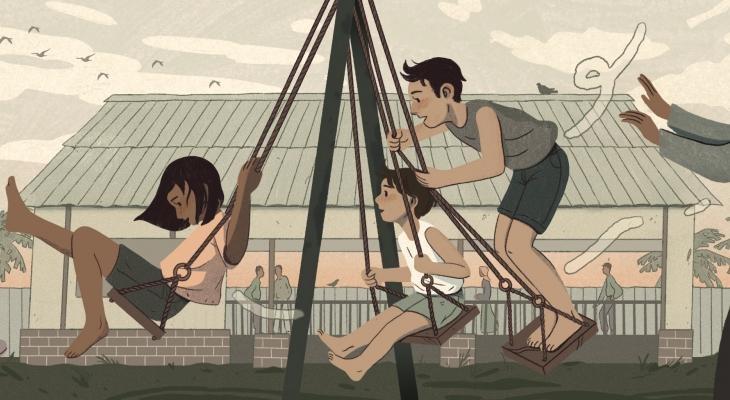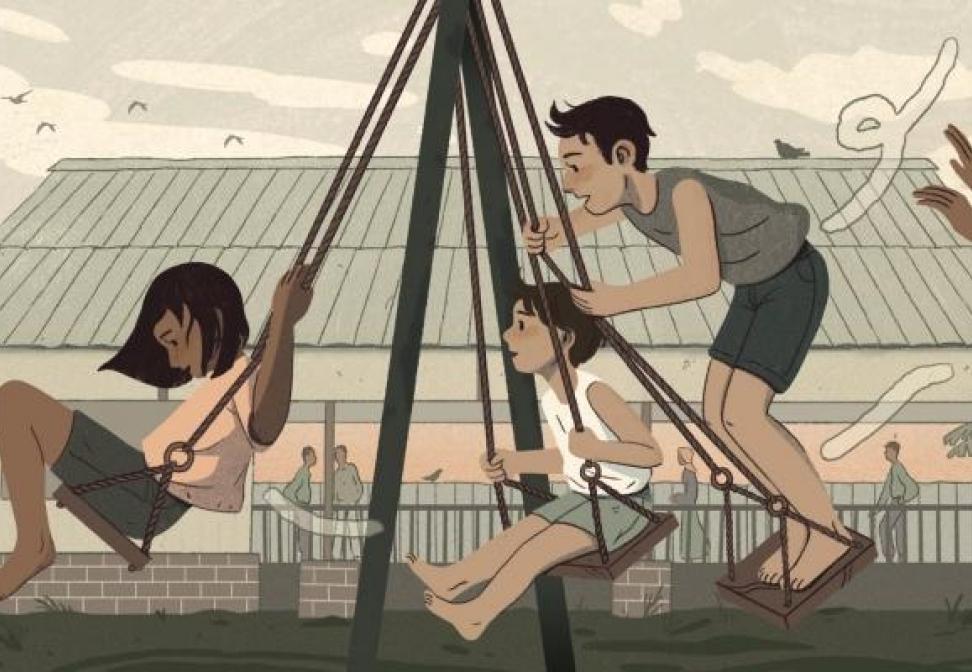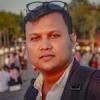How the People of Aceh Are Restoring Hope for Rohingya Refugees
In February 2020, 800 Rohingya boarded a ship to escape dire humanitarian conditions in overcrowded camps in Bangladesh, intending to reach Malaysia. Many wished to reunite with their estranged family members, children to their fathers and newlywed brides to husbands.
They were abandoned in Andaman sea for five to seven months, where they said around 100 people died of starvation and dehydration. They tried to land Malaysia and Thailand. but both countries towed their ship back to the ocean. Then, the smugglers divided them into small boats. On 8 June 2020, some three hundred on a small boat managed to touch Malaysian shore. In the same month, Aceh fishermen sighted another boat with 99 which followed the third boat with 297 of them that landed in Aceh in September 2020. They were temporarily sheltered in Lhokseumawe city in Aceh. They are now being moved to International Migration Organization (IOM) accommodations in Medan.
As a Rohingya myself, I wanted to go there and meet my people and listen to their stories. But as a refugee, my travel is limited in Indonesia. In October 2020, I was finally able to go there with UNHCR’s help. On the second day, I went to the beach where the Rohingya were rescued. I wanted to find out where the boats landed. I asked a man fishing nearby, he showed me the exact location and told me that he was one of the rescuers.
“They are our brothers, and we were once like them when we had a conflict here. They are stateless. They are fleeing genocide. Even if the world denies them, we will welcome them.”
They are now temporarily sheltered on the coast of Lhokseumawe where the locals and university students voluntarily come to camp to teach them English, Bahasa Indonesia and other basic skills. With the help of the locals, most of the refugees are now speaking Bahasa Indonesia. They can now write and read in English. The locals bring snacks for the kids and play, dance and sing with refugees. In the camp, there is a big storage of food and clothes donated by locals.
When a refugee is absent in the class, these locals go to their room and comfort them by listening to their sorrows. Their relationships are not like teacher and pupil, but as if they are friends or family. This in return helps refugees with their mental health.
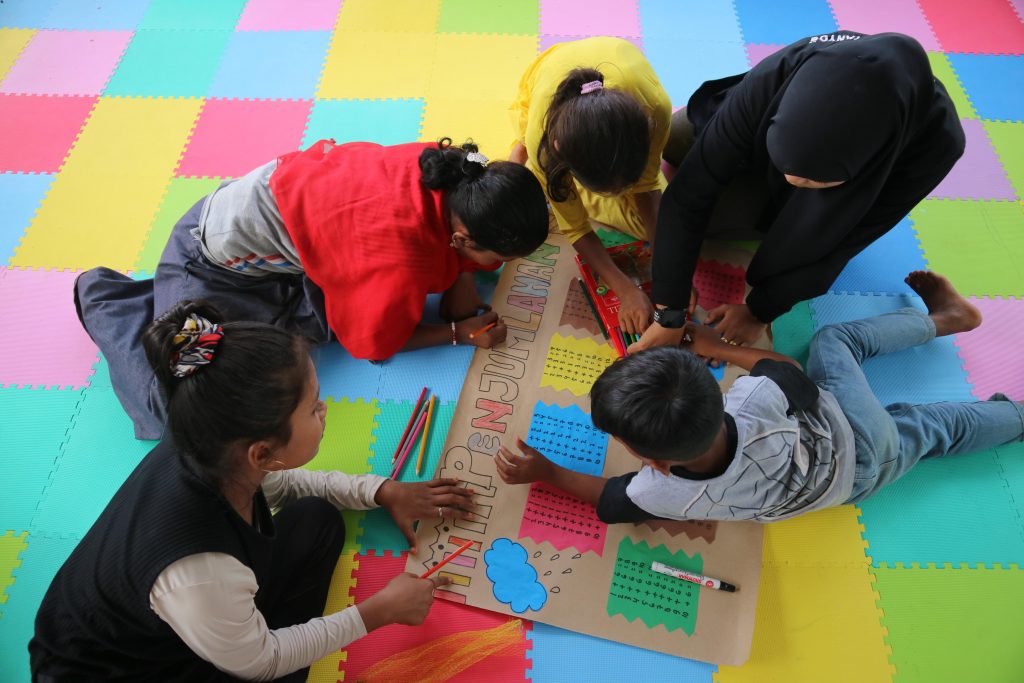
There are some orphan children who lost their parents in the boat journey, and some unaccompanied refugees and many more are insecure about the future and traumatised as they grew up under persecution and isolation in Myanmar. They get stressed often as they have to force themselves to adapt to the new environment and face difficulties to catch up with the modern world. However, the kindness and love of the locals have helped to maintain their mental health.
The Acehnese help the Rohingya understand and learn local cultures. In a thanksgiving event for locals organised by UNHCR at the camp, Rohingya children were trained to perform local cultural dances which drew praise from representatives from NGOs and government agencies in the audience.
“They look just like us. We will help them as they are also human beings like us, and we will treat them like ones of us,” said the Mayor of Lhokseumawe, Suaidi Yahya, in the event.
Later, I met some student activists who are even willing to accept Rohingyas for local integration and study alongside them in their school and university. They would be happy to welcome them as citizens of Aceh.
“It is a shared responsibility for all of us to take care of refugees in terms of their education and well-being during their stay in our city. We have to treat them equally and ensure their basic rights. We want to serve as an example for the world,” said Rizqi Rahamatullah, a student activist and refugee advocate in Lhokseumawe, Aceh.
Lhokseumawe is a relatively small city of 203,284 people in Aceh, the westernmost province of Indonesia. But they have made their mark in history by saving thousands of Rohingya from the ocean since 2009.
“We almost died in the ocean, but Aceh people gave us second lives,” said Mohammed Ayaz, a 17-year-old Rohingya refugee. He is one of the refugees saved by the Acehnese last year, and is now temporarily sheltered in Lhokseumawe.
“Finally, it is here I experienced the goodness of the world. The people here care for us as if we are their own people. We feel grateful towards them at every step we take, and we can never forget their kindness and help to us.”
If people in the free world can spare some time from their busy lives to support refugees, it would make a world of difference for refugees. Refugees cannot rely on the world leaders and politicians. They need citizens' support.
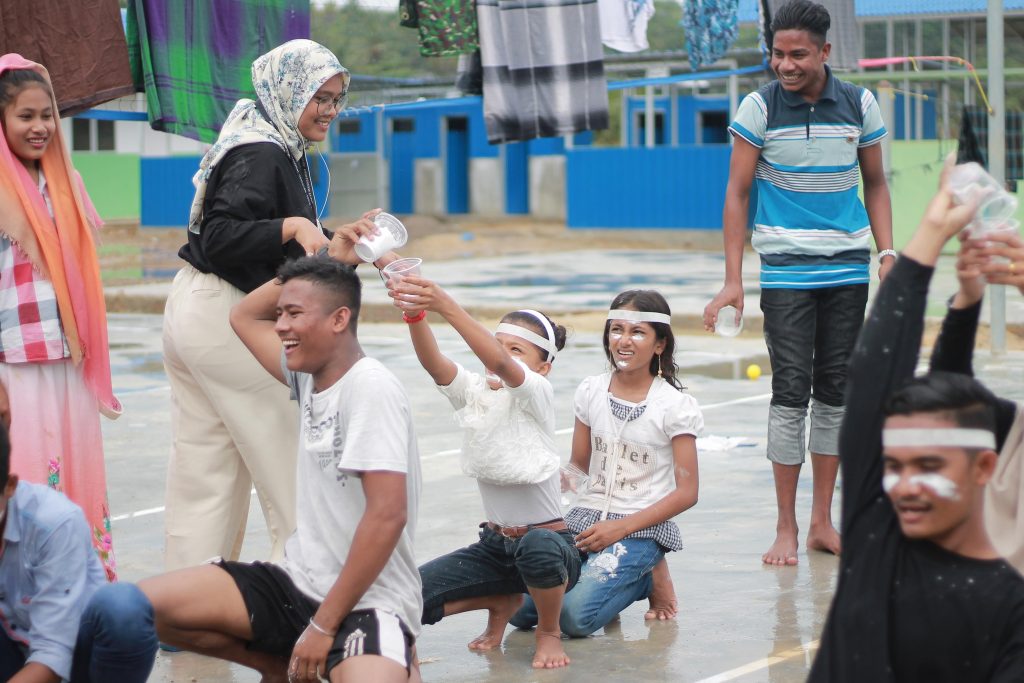
There are many ways to help refugees. First, refugees need to feel welcomed in the host countries, as how people in Aceh have welcomed Rohingya.
Second, they can advocate and lobby for refugees to their governments to accept them for local integration and help them access their basic rights. While they wait for a solution, they need basic rights such as the right to study, work and travel. Finally, they can help raise awareness to third countries which signed the UN 1951 refugee convention such as Australia, the United States and Canada and cooperate with international NGOS in their pursuit of solutions for refugees.
Everyone is a member of a global family that has migrated in some form or another; Indeed, at some point in time, people have chosen to move, or have been forcibly moved. And when it comes to seeking protection, we all deserve an equal, fair and safe chance to do so. In a spirit of trust and cooperation, together, we can make this world a better place for the human race.
(Thanks to Geutanyoe Foundation for all the photos featured in this blog post.)
(Illustration: Ng Yin Shian)
JN Joniad is a member of the archipelago, a writers collective that builds community and mentorship with refugee and migrant background writers. The collective was founded to train new writers who are refugees in Indonesia towards professional publication and forge relationships between writers across islands. This piece was written as part of the partnership between Our Better World and the archipelago.



